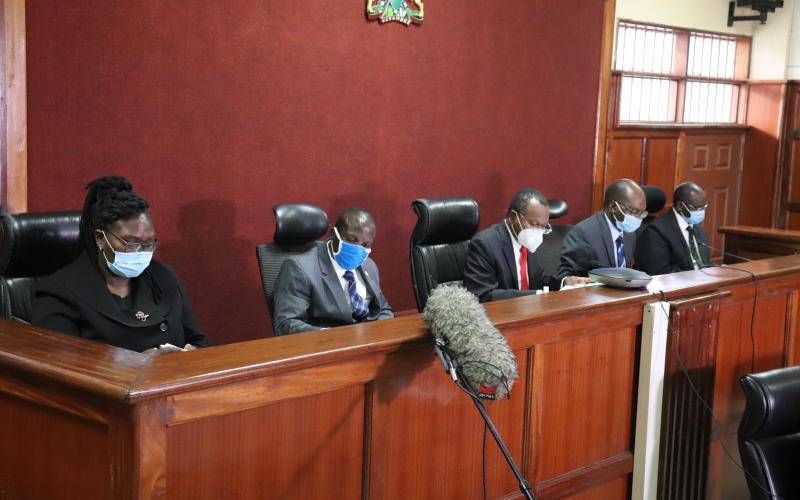×
The Standard e-Paper
Join Thousands Daily

The High Court decision that dealt a blow to the Building Bridges Initiative (BBI) has opened another can of worms in the strained relationship between the Judiciary and the Executive.
By attacking the integrity of President Uhuru Kenyatta, Justices Joel Ngugi, George Odunga, Jairus Ngaah, Chacha Mwita and Teresia Matheka touched the heart of the Executive, which legal observers say will worsen the bad blood between the two arms of government.